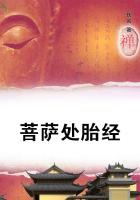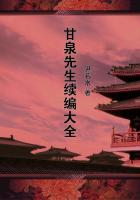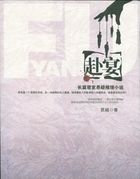To the north, the east, and the south new principalities were formed and governed by men who all claimed to be descendants of Rurik, and down to the end of the sixteenth century no Russian outside of this great family ever attempted to establish independent sovereignty.
For six centuries after the so-called invitation of Rurik the city on the Volkhof had a strange, checkered history. Rapidly it conquered the neighbouring Finnish tribes, and grew into a powerful independent state, with a territory extending to the Gulf of Finland, and northwards to the White Sea. At the same time its commercial importance increased, and it became an outpost of the Hanseatic League. In this work the descendants of Rurik played an important part, but they were always kept in strict subordination to the popular will. Political freedom kept pace with commercial prosperity. What means Rurik employed for establishing and preserving order we know not, but the chronicles show that his successors in Novgorod possessed merely such authority as was freely granted them by the people. The supreme power resided, not in the prince, but in the assembly of the citizens called together in the market-place by the sound of the great bell. This assembly made laws for the prince as well as for the people, entered into alliances with foreign powers, declared war, and concluded peace, imposed taxes, raised troops, and not only elected the magistrates, but also judged and deposed them when it thought fit. The prince was little more than the hired commander of the troops and the president of the judicial administration. When entering on his functions he had to take a solemn oath that he would faithfully observe the ancient laws and usages, and if he failed to fulfil his promise he was sure to be summarily deposed and expelled. The people had an old rhymed proverb, "Koli khud knyaz, tak v gryaz!"
"If the prince is bad, into the mud with him!"), and they habitually acted according to it. So unpleasant, indeed, was the task of ruling those sturdy, stiff-necked burghers, that some princes refused to undertake it, and others, having tried it for a time, voluntarily laid down their authority and departed. But these frequent depositions and abdications--as many as thirty took place in the course of a single century--did not permanently disturb the existing order of things. The descendants of Rurik were numerous, and there were always plenty of candidates for the vacant post. The municipal republic continued to grow in strength and in riches, and during the thirteenth and fourteenth centuries it proudly styled itself "Lord Novgorod the Great" (Gospodin Velilki Novgorod).
"Then came a change, as all things human change." To the east arose the principality of Moscow--not an old, rich municipal republic, but a young, vigorous State, ruled by a line of crafty, energetic, ambitious, and unscrupulous princes of the Rurik stock, who were freeing the country from the Tartar yoke and gradually annexing by fair means and foul the neighbouring principalities to their own dominions. At the same time, and in a similar manner, the Lithuanian Princes to the westward united various small principalities and formed a large independent State. Thus Novgorod found itself in a critical position. Under a strong Government it might have held its own against these rivals and successfully maintained its independence, but its strength was already undermined by internal dissensions. Political liberty had led to anarchy. Again and again on that great open space where the national monument now stands, and in the market-place on the other side of the river, scenes of disorder and bloodshed took place, and more than once on the bridge battles were fought by contending factions. Sometimes it was a contest between rival families, and sometimes a struggle between the municipal aristocracy, who sought to monopolise the political power, and the common people, who wished to have a large share in the administration. A State thus divided against itself could not long resist the aggressive tendencies of powerful neighbours. Artful diplomacy could but postpone the evil day, and it required no great political foresight to predict that sooner or later Novgorod must become Lithuanian or Muscovite. The great families inclined to Lithuania, but the popular party and the clergy, disliking Roman Catholicism, looked to Moscow for assistance, and the Grand Princes of Muscovy ultimately won the prize.















